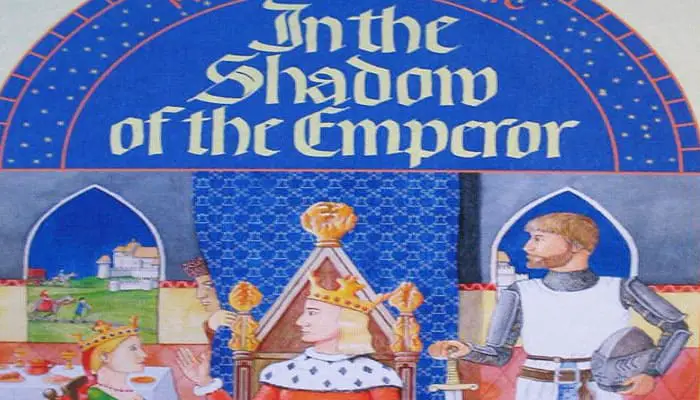
Components
- Game board
- 28 barons
- 12 knights
- 4 colored chips
- 12 cities
- 4 scoring markers
- 3 empire cities
- 1 round marker
- 1 emperor marker
- 21 action cards,
- 41 victory point cards
- 4 election cards
- 4 summary cards
- 1 start position card
- 1 rule booklet
The game board shows the Thaler track, the Emperor's throne with the Round track, 3 spaces for the victory point cards, and 7 Electorates (upper row: 3 spritual electorates = Archdiocese, lower row: 4 secular electorates).
Object of the Game
Germany in the late middle-ages: the players represent aristocratic families, trying to elevate their claims to the throne. To do this, players collect victory point cards by building cities, being promoted to elector, etc. …




